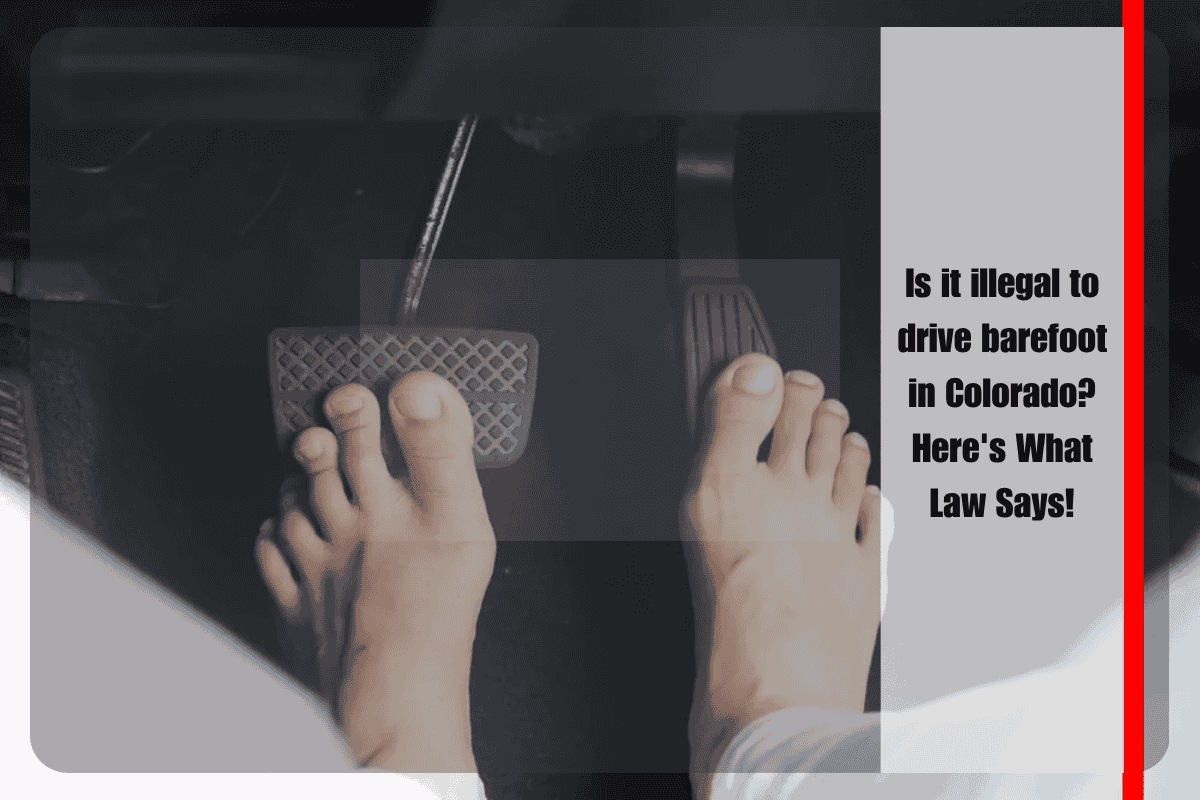It is not illegal to drive barefoot in Colorado. There are no state laws or regulations that explicitly prohibit drivers from operating a vehicle without shoes. In fact, this is one of the most enduring traffic law myths in the United States—not just in Colorado, but across all states. The notion that driving barefoot could result in getting ticketed or fined is unfounded according to state law and official guidance from law enforcement. If a police officer in Colorado stops you for any reason, you cannot be cited simply for not wearing shoes behind the wheel.
That said, legal permission does not equate to endorsement. Law enforcement agencies and safety experts generally caution against driving barefoot. Their concerns are primarily focused on vehicle control and personal safety. For most people, shoes provide much-needed grip and leverage when operating a vehicle’s pedals. Bare feet, especially if wet or sweaty, may be more prone to slipping off the brake or accelerator, making precise pedal control more difficult. This loss of grip can, in turn, lead to delayed braking or unpredictable acceleration—both of which increase the risk of a collision, particularly in an emergency.
Additionally, driving barefoot can sometimes feel uncomfortable, especially during longer drives. If your foot begins to hurt or becomes numb from pushing against a hard pedal for an extended period, your reaction time may be diminished in crucial moments. During an accident or sudden stop, bare feet are more vulnerable to injury from broken glass, sharp objects, or the vehicle structure. Moreover, Colorado’s wide range of temperatures means that drivers could be exposed to uncomfortably hot or cold pedal surfaces in summer or winter, resulting in distraction or, in very rare cases, injury.
While you cannot be ticketed solely for barefoot driving, the question of fault sometimes arises in the aftermath of an accident. For instance, if your foot slips off the pedal and causes you to lose control of the vehicle, being barefoot may be considered a contributing factor to the crash. Colorado operates under a system of modified comparative negligence, which means your compensation in a personal injury claim could be reduced if your own actions—such as not wearing footwear—played a role in the incident. That said, insurance companies generally do not deny claims just because a driver was barefoot, unless it can be shown that this directly contributed to the accident.
Many persistent myths surround barefoot driving. Some believe that without shoes, their insurance becomes void or that police routinely ticket drivers for this behavior. However, there is no legal or insurance policy base for these claims, unless specific negligence is proven. Others suggest that barefoot driving actually provides better pedal feel and vehicle control, but most driving instructors and safety organizations continue to advocate for stable, closed-toe shoes with flat soles, which are most likely to help a driver respond safely and effectively.
In short, while it is entirely legal to operate a motor vehicle barefoot in Colorado, doing so is not recommended from a safety standpoint. Responsible drivers are encouraged to wear proper shoes—not just to comply with best practices for safety and control, but also to protect themselves in the event of the unexpected while on the road.
Sources
[1] https://www.mydenveraccidentlawfirm.com/news-resources/is-it-legal-to-drive-without-shoes/
[2] https://gandertonlaw.com/is-it-illegal-to-drive-barefoot/
[3] https://personalinjuryco.com/can-you-drive-barefoot-in-colorado/
[4] https://www.greatwestinjurylaw.com/blog/auto-accidents/is-driving-barefoot-legal-in-Colorado/
[5] https://www.thezebra.com/resources/driving/driving-barefoot/












